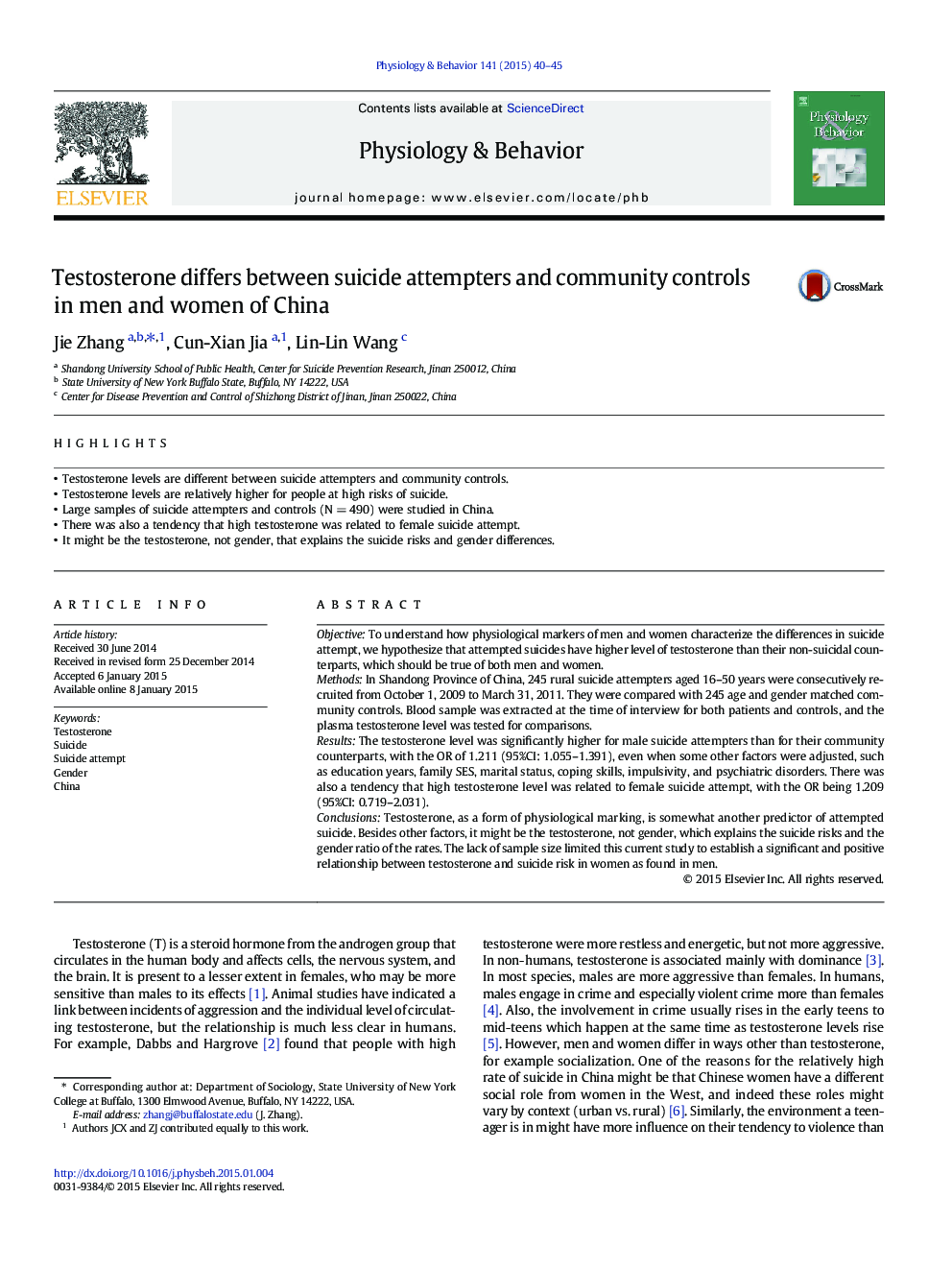| Article ID | Journal | Published Year | Pages | File Type |
|---|---|---|---|---|
| 5923737 | Physiology & Behavior | 2015 | 6 Pages |
â¢Testosterone levels are different between suicide attempters and community controls.â¢Testosterone levels are relatively higher for people at high risks of suicide.â¢Large samples of suicide attempters and controls (N = 490) were studied in China.â¢There was also a tendency that high testosterone was related to female suicide attempt.â¢It might be the testosterone, not gender, that explains the suicide risks and gender differences.
ObjectiveTo understand how physiological markers of men and women characterize the differences in suicide attempt, we hypothesize that attempted suicides have higher level of testosterone than their non-suicidal counterparts, which should be true of both men and women.MethodsIn Shandong Province of China, 245 rural suicide attempters aged 16-50Â years were consecutively recruited from October 1, 2009 to March 31, 2011. They were compared with 245 age and gender matched community controls. Blood sample was extracted at the time of interview for both patients and controls, and the plasma testosterone level was tested for comparisons.ResultsThe testosterone level was significantly higher for male suicide attempters than for their community counterparts, with the OR of 1.211 (95%CI: 1.055-1.391), even when some other factors were adjusted, such as education years, family SES, marital status, coping skills, impulsivity, and psychiatric disorders. There was also a tendency that high testosterone level was related to female suicide attempt, with the OR being 1.209 (95%CI: 0.719-2.031).ConclusionsTestosterone, as a form of physiological marking, is somewhat another predictor of attempted suicide. Besides other factors, it might be the testosterone, not gender, which explains the suicide risks and the gender ratio of the rates. The lack of sample size limited this current study to establish a significant and positive relationship between testosterone and suicide risk in women as found in men.
